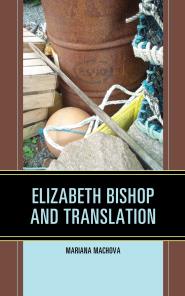
The book examines the relationship between translation and original creation in the works of the American poet Elizabeth Bishop, suggesting that translation can be seen as a poetic principle which can be related to the poet’s original works, too. The book offers a detailed discussion of all the translation projects Bishop undertook throughout her life (from Ancient Greek, French, Portuguese and Spanish), both published and unpublished. They are seen in the context of her life and work, and analyzed with particular regard for the features which are relevant in relationship to Bishop’s own works. Bishop’s work as a translator has not been explored thoroughly yet, despite the huge critical interest in Bishop in the last decades, and one of the aim of the book is to offer such exploration. The second part of the book focuses on the ways Bishop’s interest in translation and her experience of a translator is manifested in her original works. Bishop’s poems are read with particular attention paid to the features which relate them to translation, particularly the complex interaction between the foreign and the familiar, which is examined not only in her poems dealing with exotic places (namely Brazil), but also in texts dealing with more familiar topics and locations. The final chapter argues that a crucial role in Bishop’s works is played by the unknown – that which is impossible to understand and translate fully. The book also suggests that, on a more general level, a type of poetics which shares certain key features with translation could be defined.
1. Aristophanes
2. Max Jacob
3. The Diary of “Helena Morley”
4. Clarice Lispector
5. An Anthology of Twentieth-Century Brazilian Poetry
6. Sambas and Popular Songs
7. Octavio Paz
II. Translation in Elizabeth Bishop’s Poetry
8. The Foreign
9. The Familiar
10. The Unknown
Epilogue: Translation as Poetics
Lexington Books
Pages: 182 • Size: 6 1/4 x 9 3/8